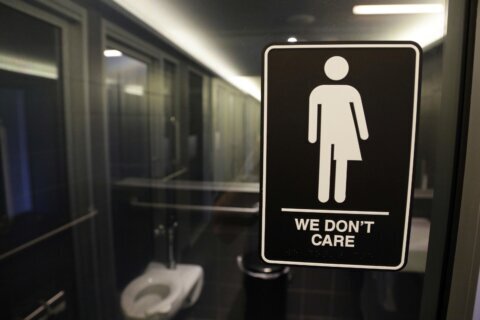Yale University and a student group announced Friday that they’ve reached a settlement in a federal lawsuit that accused the Ivy League school of discriminating against students with mental health disabilities, including pressuring them to withdraw.
Under the agreement, Yale will modify its policies regarding medical leaves of absence, including streamlining the reinstatement process for students who return to campus. The student group, which also represents alumni, had argued the process was onerous, discouraging students for decades from taking medical leave when they needed it most.
The settlement is a “watershed moment” for the university and mental health patients, said 2019 graduate Rishi Mirchandani, a co-founder of Elis for Rachael, the group that sued. It was formed to help students with mental health issues in honor of a Yale student who took her own life.
“This historic settlement affirms that students with mental health needs truly belong,” Mirchandani said.
A joint statement from Elis for Rachael and Yale, released on Friday, confirmed the agreement “to resolve a lawsuit filed last November in federal district court related to policies and practices impacting students with mental health disabilities.”
Under the agreement, Yale will allow students to study part-time if they have urgent medical needs. Elis for Rachael said it marks the first time the university has offered such an option. Students granted the accommodation at the beginning of a new term will receive a 50% reduction in tuition.
“Although Yale describes the circumstances for this accommodation as ‘rare,’ this change still represents a consequential departure from the traditional all-or-nothing attitude towards participation in academic life at Yale,” the group said in a statement.
The dean of Yale College, Pericles Lewis, said he was “pleased with today’s outcome.”
He said “constructive ideas” had emerged from students and alumni, saying in a statement that he hopes the changes “will make it easier for students to ask for support, focus on their health and wellbeing, and take time off if they wish, knowing that they can resume their studies when they are ready.”
In a November letter to alumni responding to a Washington Post article about student mental health and Yale’s withdrawal and readmission policies, President Peter Salovey said colleges and universities in the last few years have seen a surge in demand for mental health services that was exacerbated by the pandemic. He said Yale stopped requiring withdrawn students to take two courses at another school before they could seek readmission.
But the plaintiffs argued much more was needed, including a more individualized process for students. Under the agreement, the length of a student’s leave would be “based on a clinical assessment. Students may remain on a medical leave of absence for as long as they wish.”
Copyright © 2024 The Associated Press. All rights reserved. This material may not be published, broadcast, written or redistributed.






